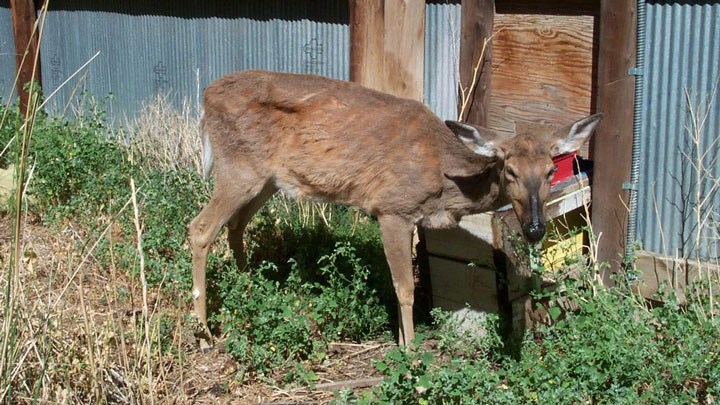
by Karen Mehall Phillips - Thursday, December 9, 2021

For news from the wildlife conservation front, yesterday the U.S. House of Representatives passed H.R. 5608—the Chronic Wasting Disease (CWD) Research and Management Act—to help address CWD by funding research and supporting state and tribal agencies’ efforts to create and implement management strategies to combat the always fatal disease. The $70 million bill was passed less than two months after it was introduced on Oct. 19, underscoring its widespread bipartisan support.
Put forth with input from hunting and wildlife conservation groups and wildlife science professionals, the comprehensive legislation specifically authorizes $70 million in annual funding from Fiscal Year 2022 to Fiscal Year 2028. It directs $35 million annually for CWD research to develop testing methods, enhance detection efforts and study genetic resistance with the remaining $35 million to cover the management of CWD, providing much needed resources to America’s wildlife managers.
CWD is a contagious, neurological disease affecting cervids including deer, elk and moose with no known cure. It has been documented in 27 states to date as concerns escalate over its potential to spread to herds nationwide. As this NRA Hunters’ Leadership Forum (HLF) website shared, Idaho became the latest state to detect CWD, confirming it in two mule deer on Nov. 16. H.R. 5608 recognizes that CWD is one of the most urgent issues facing wildlife managers partly as the disease’s progression is slow and affected animals may not show symptoms for years.
Joining the NRA in applauding the move are many coalition members of American Wildlife Conservation Partners (AWCP), including the Congressional Sportsmen’s Foundation, Boone and Crockett Club, Dallas Safari Club, Safari Club International and the Rocky Mountain Elk Foundation. These groups are showing strong support in representing the interests of America’s millions of hunter-conservationists, professional wildlife and natural resource managers, outdoor recreationists, conservation educators and wildlife scientists.
In looking to the future, Rep. Thompson, one of the U.S. representatives who worked to introduce the bill, noted on Twitter that passage of the act is “moving us one step closer to better understanding the diagnosis, transmission and spread of this deadly disease.”
As explained by wildlife biologist and NRA HLF contributor Jim Heffelfinger, who has worked for state and federal wildlife agencies, universities and the private sector and serves as chairman of the Mule Deer Working Group, “Passage of the act is long overdue as CWD gets the attention it needs. It’s about time we finally have the funds to move the needle on making some progress on research and in assisting state agencies with managing the disease in the wild.”
E-mail your comments/questions about this site to:
[email protected]
Proudly supported by The NRA Foundation and Friends of NRA fundraising.
